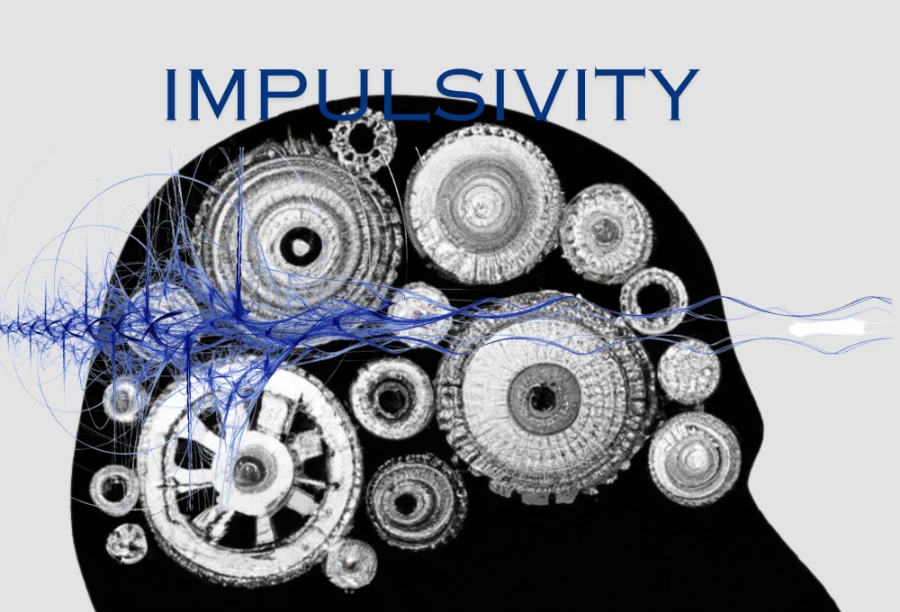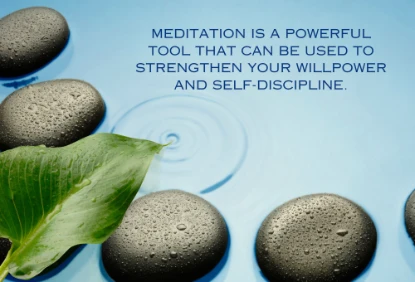

By Victoria
As someone who struggles with impulsivity, I know firsthand how challenging it can be to stay focused and calm. Despite my best efforts, I often find myself distracted, impulsive, and overwhelmed. That’s why I’ve turned to meditation as a way to find peace and focus in my daily life. In this article, I’ll explore the benefits of meditation for impulsivity, and how to start a meditation practice.
Impulsivity is a personality trait characterized by acting on impulse without considering the consequences. It can manifest in a variety of ways, from making impulsive purchases to engaging in risky behaviors. Impulsivity can be caused by a variety of factors, including genetics, environment, and mental health conditions such as ADHD or bipolar disorder. While some level of impulsivity is normal and can even be beneficial in certain situations, excessive impulsivity can be harmful and interfere with daily life.
Impulsivity can be incredibly challenging to manage, and it can cause significant stress and turmoil in one’s life. It can lead to difficulties in relationships, at work, and in daily tasks. However, there are natural remedies, such as meditation, that can help manage symptoms and improve overall well-being.
A person who is careless, automatic, spontaneous, and uncontrollable, reacts based on the temporary emotion without considering how it will affect others, which can be self-destructive. “Impulsiveness is the enemy of deep thinking. If you free yourself from impulsive actions, you can become truly free.”

Meditation focuses on reflecting by recalling your life and realizing where all your stresses and burdens come from which increases self-awareness. Once you have reflected and recalled those images in your mind you can cleanse and eliminate the attachments to them. You can do this from the perspective of the universe while being guided. Ultimately as you eliminate the clutter in your mind you will be able to find the true you that is able to exist in peace and contentment. You realize that the truth exists within you. This realization leads to true and lasting happiness, as you experience the world in a new way. Those compulsive and impulsive feelings disappear and you can calmly appreciate life without chasing imagined needs and desires.
The benefits of meditation are numerous and well-documented. In addition to reducing stress and anxiety, meditation has been shown to improve mood, increase focus and concentration, and even improve physical health. Meditation has also been associated with increased gray matter in the brain, which is responsible for processing information and regulating emotions. This increased gray matter can lead to improved cognitive function and emotional regulation.
Meditation has been shown to have beneficial effects on reducing impulsivity. By bringing you more into the present moment you are able to focus better on your thoughts and actions. You are able to observe your thoughts and feelings in a non-judgmental way, without becoming overly reactive. This helps you become more aware of your impulses and make more thoughtful decisions. Studies have found that people who meditate regularly were low in impulsivity. Regular meditation is linked with improved attention, self-regulation, decision making, leading to being able to focus in the moment.
There is a growing body of research supporting the effectiveness of meditation in managing impulsivity. One study published in the Journal of Attention Disorders found that meditation improved attention and reduced impulsivity in adults with ADHD. Another study published in the journal Mindfulness found that meditation reduced impulsivity and improved emotional regulation in individuals with borderline personality disorder. These studies suggest that meditation may be an effective tool for managing impulsivity in a variety of contexts.
There are many success stories of individuals who have used meditation to manage impulsivity and improve their overall well-being. For example, one study published in the Journal of Alternative and Complementary Medicine found that meditation reduced impulsivity and improved self-control in individuals with substance use disorders. Another study published in the Journal of Psychiatric Research found that meditation reduced impulsivity and improved cognitive control in individuals with depression.

In elementary school I was impulsive and demonstrated the inability to attend and focus on tasks presented in the classroom which affected my grades. I required one-on-one support from a teacher to assist me on reading comprehension because I had difficulty with understanding and retelling important information that I read or heard. In adulthood my impulsivity persisted, requiring me to always be on the move, acting without thinking of consequences which affected many relationships. As an adult I gained more self-awareness about the severity of my impulse control and focus, so I signed up for meditation. At weekly one on one meditation sessions, I noticed how the practice of letting go of attachments (e.g. fear, worry, anxious, judgment, impulsive thoughts) helped me gain self-control. Practicing by bringing up the images of my life and throwing them away to clear my scattered mind, I noticed that my impulsiveness and emotional reactivity were not as severe as they had been before. I began to realize that my ailments, once debilitating, were directly soothed by my meditation practice. I learned to let go of my attachments and be free of worries, fears, judgements etc, it had an immense impact on my concentration and emotional stability.
In conclusion, meditation was a powerful tool for managing my impulsivity and improving overall well-being. By practicing meditation regularly, you can improve your emotional regulation, attention, and focus, which can help you resist impulsive urges and make more deliberate decisions. Whether you are new to meditation or have been practicing for years, incorporating meditation into your daily routine can have a positive impact on your life.
Start small and be consistent, and you may be surprised at the positive impact it can have on your life.




